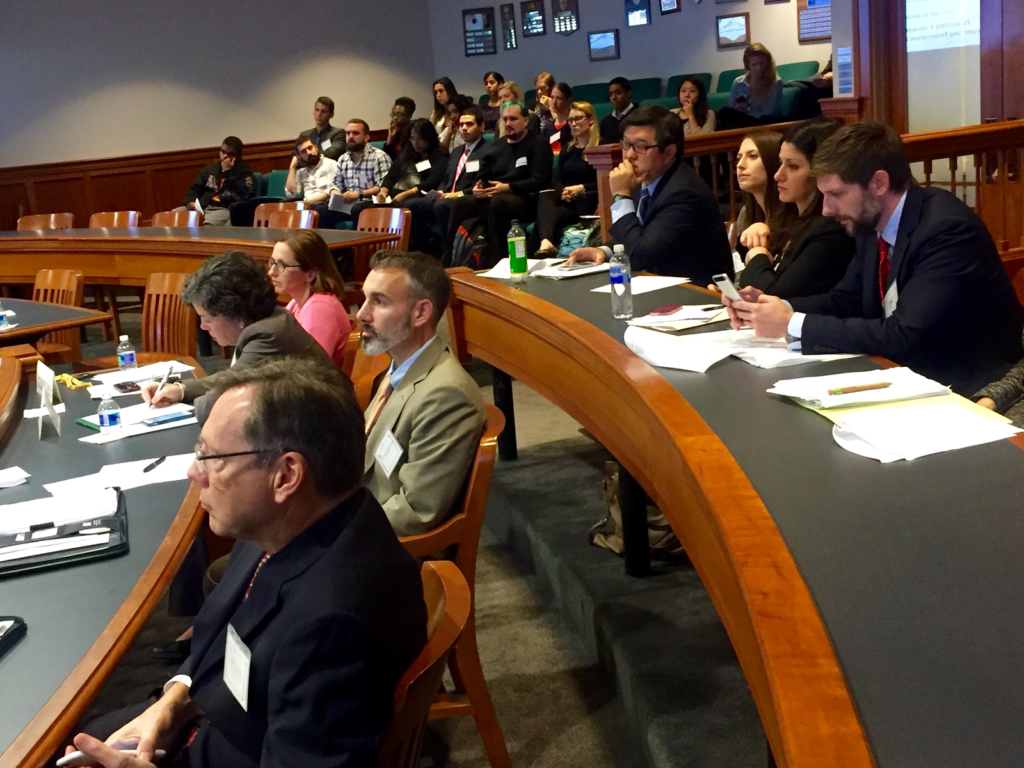Law Students Challenge Political Influence to the Bench

By Chris Carey
Jill Dash of the American Constitution Society (ACS) and President of the Women’s Bar Association in D.C., stressed the need for closer examination of the federal judicial nomination and approval process to a crowd of students from the Columbus School of Law last Monday.
Dash works as the Vice President in charge of Strategic Engagement at ACS, where she manages special projects regarding the courts, judicial nominations, as well as interest recruiting for those who wish to sit on the bench. The American Constitution Society strives to bring light to issues surrounding bias in the world of judicial nominations, both locally, and on a federal level, and with the Trump Administration and its 157 Federal Judge confirmees, the rules of the game seem to be changing.
“I do think it’s a really important topic, it ends up being a [secondary] topic sometimes for people,” said Dash, speaking on federal judicial nominations. “They don’t know how important it is and how all the issues they care about run through the courts, but it’s a really important thing for people to be thinking about.”
Third-year law student and President of the ACS Chapter at the Columbus School, Eric Kim, put the event together, citing ongoing partisan influence in the courts, as well as the need for impartial, level-headed justices.
“The main reason why I wanted to put on this kind of event was because a lot of people do not know about the process and I feel like it was a good opportunity for law students to learn about something from a person that’s different from how a textbook would relate,” said Kim. “I think it’s also important because this current administration has been very very surgical in how they’re getting in federal judges.”
Throughout her talk, Dash consistently pointed to the break from accepted norms regarding the process, such as the process where U.S. Senators previously signed off on nominees for judgeships in their respective states. Under the Trump Administration, nominations have gone forward without the approval, informal or not, of the Senators where the judges go on to serve.
Additionally, she highlighted the nomination of such controversial, seemingly political, nominees as Lawrence VanDyke of Montana who has received flak regarding comments about LGBTQ+ communities, as well as a questionable temperament throughout the senate hearing. VanDyke is one of nine Trump nominees who were deemed unfit for the position by the American Bar Association.
Not every student present was as accepting of Dash’s position as Kim. During the question and answer, two students questioned the premise of much of Dash’s argument, citing ACS and the American Bar Association as traditionally left-leaning groups, and claiming that much of Dash’s speech was partisan.
Nevertheless, many other students enjoyed the event, interacted extensively with Dash at the reception, and were firm that such activities and events create a greater dialogue of the real world problems which take learning beyond the walls of the Columbus School of Law.





